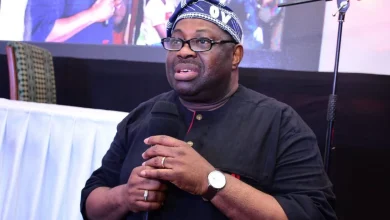Why Black Women Still Struggle To Reach CEO Roles

Business women in conversation at work
getty
Black women in corporate America possess at least the same, and often greater ambition, equal qualifications, and, in some cases, outperform their peers. Yet, they remain underrepresented in top leadership jobs in Fortune 500 companies.
In fact, over the 70 years since the Fortune 500 list was first published in 1955, only five Black women have ever served as CEO of one of those companies. By contrast, six Black women have journeyed to outer space as astronauts, a job that is equally demanding and risky and for which the odds of being selected are very low.
The number of Black women CEOs of Fortune 500 companies can be counted on one hand. In 2009, the Xerox corporate board selected Ursula Burns, the first Black woman CEO to lead a Fortune 500 company. It would be another decade until the Bed, Bath & Beyond board chose Mary Winston as its interim in 2019. The other three women who have held this role, Rosalind Brewer (Walgreens Boots Alliance), Thasunda Brown Duckett (TIAA), and Toni Townes-Whitley (SAIC), were all selected in the last four years. Brown Duckett and Townes-Whitley are the only two Black women CEOs on the latest list, published in June 2025.
So why do Black women still struggle to reach the C-suite?
It’s Not Easy To Become A Fortune 500 CEO
The journey to becoming a CEO is not for the faint of heart. Progression to the role typically takes decades, during which a CEO hopeful must continuously develop in response to changing stakeholder demands. In 2017, Harvard Business Review reported that the path to CEO typically requires executives to make several lateral moves, take on international assignments, and face other highly taxing experiences. Center for Creative Leadership and McKinsey data indicate that executives must contend with long work hours, persistent high stress, and constant pressure to innovate and excel. The job is also risky due to its high impact on the organization’s trajectory, shareholder value, and the communities in which it operates. After all that effort, the average tenure of a CEO is only about seven years.
Analyzing The Gap For Black Women In Fortune 500 CEO Roles
To clarify the representation gap of Black women as Fortune 500 CEOs, we conducted a simple numerical analysis. The average tenure of a Fortune 500 CEO is 7 years. Typically, for each CEO selection, about three candidates are selected for the board interviews from which the board chooses the eventual CEO. We estimate, based on data from several sources, including Fortune, The Conference Board, and the Harvard Law Corporate Governance Forum, that Fortune 500 board selection committees have interviewed approximately 8,300 candidates and hired about 3,950 CEOs since 1955. For this analysis, we rounded the final hire count to 4,000. Approximately 85% of those appointments (about 3,400) went to White men, and approximately 200 (five percent) to White women.
Black & White Fortune 500 CEOs, 1955 to 2025
Gena Cox, PhD
Black women hold just five out of the 330 Fortune 500 CEO seats they could occupy if boards selected them at a similar rate to their representation in the workforce.
Why Black Women Are Underrepresented In CEO Roles
Most CEOs Are Insiders, Black Women CEO Candidates Are Not
Boards currently select most Fortune 500 CEOs from internal candidates who have held specific feeder roles. Boards value operational and profit and loss (P&L) leadership experience. According to executive search firm Heidrick & Struggles, most successful candidates come from leading a division of the company or from roles such as Chief Operating Officer (COO) or Chief Financial Officer (CFO). But there is little diversity in these feeder roles. Data for the Fortune 100 indicates that, in 2022, only five percent of individuals in these three pipeline roles were Black. The Head of Division role had the highest percentage of Black incumbents (5%), while the COO role had a 3% Black representation, and the CFO role had a 1% Black representation. The problem is clear: as long as boards continue to focus on such a narrow definition of essential experience for CEO and C-suite roles, Black candidates will seldom make the shortlist, because they are significantly under-represented in the traditional corporate feeder roles. Heidrick & Struggles put it this way: “The low levels of gender and ethnic diversity in key internal pathways to the CEO role suggest that it will be challenging to increase diversity among Fortune 100 CEOs in the medium term.”
The Boards That Select CEOs Don’t Include Enough Black Women
Corporate boards select CEOs, and according to the Alliance for Board Diversity and Deloitte, Fortune 500 boards remain predominantly White and male. In 2022, individuals from underrepresented racial/ethnic groups (UR&EG) held only 22.2% (up from 17.5% in 2020) of board seats despite comprising 40% of the U.S. population. The report struck a note of optimism because the numbers were improving. “African American/Black women made significant gains in board seats between 2020 and 2022, gaining 86 board seats, a 47% increase in seats,” according to the report. However, as a result of the changing social, legal, and political landscape in 2023, the share of new Fortune 500 board seats that went to ER&EG directors declined in 2023 to 32% from a high of 42% in 2020. Black board director appointments went down between 2020 and 2023, from 20% to 14%. This retreat means these boards’ nominating and governance committees will continue to lack diversity for the foreseeable future. Research from Harvard’s Law School Forum on Legal Governance indicates that more diverse boards tend to push for and select more diverse candidates. If those roles become even less diverse, boards will select even fewer women of color in the future. NOTE: Black women’s representation in the U.S. workforce declined dramatically in 2025. If this trend continues, it will exacerbate the challenge of getting Black women to the C-suite.
Black Women Who Aspire To Be CEOs Face Multiple Barriers
This disparity reflects decision-making errors, rather than a lack of available talent. According to research from the University of Georgia, Black CEOs have more years of education, hold more advanced degrees, and attend more elite educational institutions than their White counterparts. The study authors concluded, “It is not enough for aspiring Black CEOs to be just as good as their White counterparts – they must be substantially better to make it to the helm of firms.” That finding implies that corporate boards hold Black candidates to a higher standard than other candidates for CEO roles.
In 2022, LeanIn reported that Black women are more ambitious than other women competing for available corporate roles. While 59% of Black women aspire to be executives, only 49% of women leaders overall share a similar ambition. Opaque development systems and the exclusion of those who grew up in staff functions, along with outdated and socially restrictive decision processes, can hold them back.
McKinsey/LeanIn research also confirms that Black women face the sharpest drop-off at the critical “broken rung” of career progression: the first step up to manager. Harvard research shows that Black women are 11.5 percentage points less likely to be promoted than colleagues of other races. Another barrier is that Black women in leadership roles are more likely to be in staff functions, such as Human Resources and Marketing, which are critical to business, but are typically overlooked by boards in the search for CEO talent.
Furthermore, Black women who advance to leadership roles often encounter additional challenges, such as a lack of clear, developmental feedback and career development guidance, as highlighted by research from both Coqual and McKinsey/LeanIn. This lack of performance honesty hinders Black women from course-correcting or demonstrating readiness for stretch roles.
Organizations must be intentional about their internal development efforts to optimize the talent of Black women. As University of Houston professor of management Enrica Ruggs, Ph.D., told me, “The lack of transparency in how people are evaluated allows decision-makers to rely on who they like and feel comfortable around, criteria that systematically disadvantage Black professionals.”
Black women’s progress to corporate CEO roles is hindered by a lack of recognition of their talent and a lack of intentionality in elevating them for the opportunities that arise.





